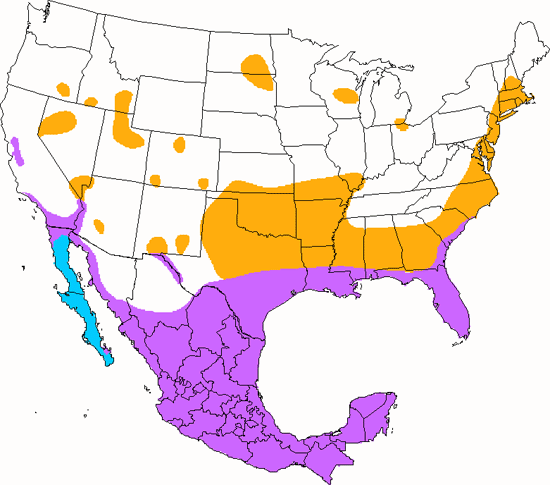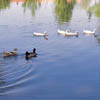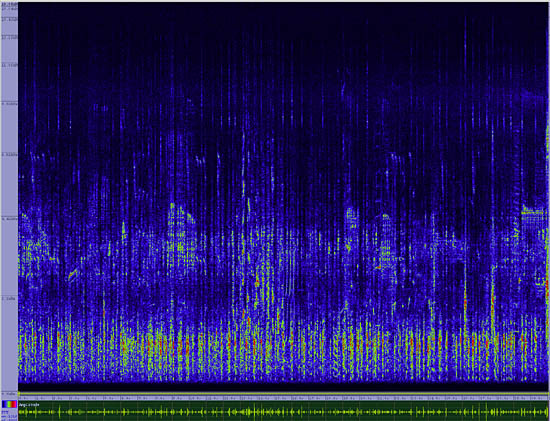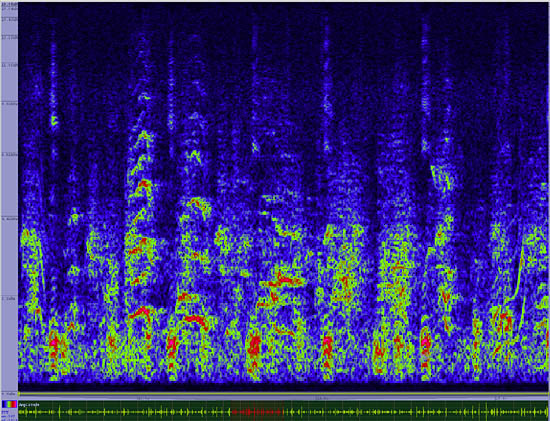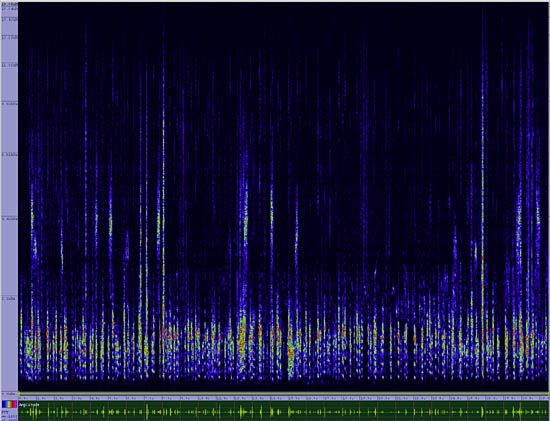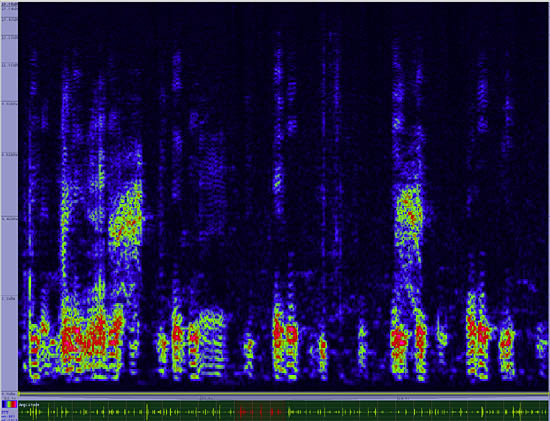Cattle Egret
Bubulcus ibis

Long Legged Waders
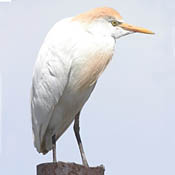
Length: 22 in. (56 cm )
Common throughout Africa and Asia, this egret has only recently made its way to the Western Hemisphere. Unusual for egrets, this species spends little time in the water. Instead they are specialized at catching insects and other small animals scared out of hiding by the hooves of large grazing mammals. Evidently arriving on a storm track from West Africa, a small flock made its way to northeastern Brazil across the Atlantic in 1870. From there they spread quickly to the north and south taking advantage of deforestation, agricultural grasslands and fields and large domestic grazing animals. By 1945 they arrived in Florida, and now they are found across most of the United States. Typically hundreds roost together each night in the same trees or reed beds over water. Every morning they disperse in small flocks in all directions and return in the evening. Nests are bulky constructions of twigs and sticks in trees over water and often in dense colonies of 1000 or more.
The four-digit banding code is CAEG.
Bibliographic details:
- Article: Cattle Egret
- Author(s): Dr. Biology
- Publisher: Arizona State University School of Life Sciences Ask A Biologist
- Site name: ASU - Ask A Biologist
- Date published: 13 Jul, 2017
- Date accessed: 19 May, 2025
- Link: https://askabiologist.asu.edu/activities/bird/cattle-egret
APA Style
Dr. Biology. (Thu, 07/13/2017 - 15:36). Cattle Egret. ASU - Ask A Biologist. Retrieved from https://askabiologist.asu.edu/activities/bird/cattle-egret
Chicago Manual of Style
Dr. Biology. "Cattle Egret". ASU - Ask A Biologist. 13 Jul 2017. https://askabiologist.asu.edu/activities/bird/cattle-egret
MLA 2017 Style
Dr. Biology. "Cattle Egret". ASU - Ask A Biologist. 13 Jul 2017. ASU - Ask A Biologist, Web. https://askabiologist.asu.edu/activities/bird/cattle-egret
Be Part of
Ask A Biologist
By volunteering, or simply sending us feedback on the site. Scientists, teachers, writers, illustrators, and translators are all important to the program. If you are interested in helping with the website we have a Volunteers page to get the process started.



